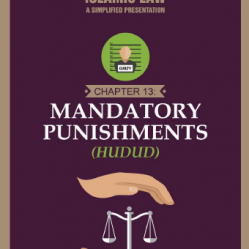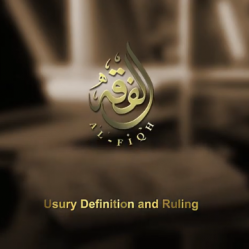Mandatory Punishments (Hudud)
Hudud are punishments for encroaching on the limits set by God, their legitimacy is based on the Quran, Sunnah and unanimity of scholars such as adultery and theft punishments.


Hudud are punishments for encroaching on the limits set by God, their legitimacy is based on the Quran, Sunnah and unanimity of scholars such as adultery and theft punishments.

Zina stands for both fornication and adultery, which are cardinal sins. Islamically, it refers to sexual intercourse between man and woman with no legitimate marital relationship.

To enforce the punishment for adultery, it must first be proven to have occurred. The proof required is either four confessions by the doer, or the testimony of four witnesses.

Accusing an innocent person with adultery or any immoral acts is strictly forbidden by God by clear statements. All Muslim scholars agree that it is a cardinal crime; due to the harm caused to the person and society.

The prescribed punishment for false accusation of adultery is severe for reasons such as: protecting society, safeguarding honors and putting an end to evil talk and indecency.

It tackles the ruling on drinking intoxicants in Islam, it is unanimously agreed that it is forbidden. The reason, punishment and conditions are discussed in detail.

The Arabic term hadd (plural: hudud) is defined as a punishment stated in Islamic law for encroaching on the limits set by Allah. It is also defined as a punishment stated in Islamic law, as a deterrent from committing a similar offence.

Pilgrimage is one of the five pillars upon which the structure of Islam is built on. Its steps are clearly mentioned in Quran and it must fulfill certain rites in particular places and times in order to be complete.

Compensation is an obligation on pilgrim if he violates any of pilgrimage restrictions. Compensation is due whether the violation was for a valid on invalid reason. It may be a sacrifice, donation or fasting.

Sacrifice or Hady is slaughtering animals to earn God’s reward as a part of Pilgrimage. There are five types; some are compulsory others are voluntary or recommended. Time and place for sacrifice depend on its type.

Mandatory Punishments.

Usury Definition and Ruling.


Confirmation of the start of Ramadan.

When the intention should be formed.


Committing a murder or killing someone without a lawful cause is strictly forbidden in Islam as stated in Quran. Killing is categorized into three types; deliberate, semi-deliberate and accidental.

Deliberate killing is a major sin, if the killer is a sane adult fulfilling 3 murder conditions he should be subjected to retribution of death as Qisas unless the victim's family forgives or accepts indemnity.

Accidental killing does not incur a punishment in the hereafter, while the ruling in this life is that indemnity is payable by the offender and his relatives in of 3 years.

A qisas punishment is enforced in case of offences causing physical injury based on the Qur’an, the Sunnah and unanimity of scholars. Such Offences are of three categories.
Sorry, You must be logged in. Use link below to log in or sign up Sign in
